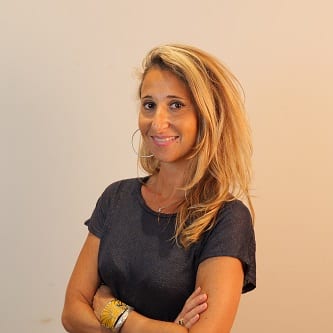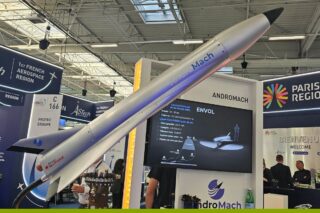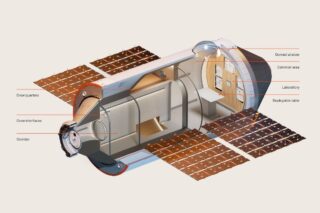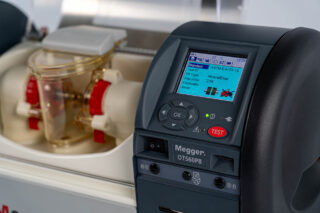Launched in 2021 by Aymeric Grange and Thomas Arnaudo, 900.care is a French brand dedicated to creating 100% solid, refillable hygiene products made entirely in France. These products, produced in compact “tiny factories,” use minimal water and energy, thereby reducing plastic waste and carbon emissions associated with transportation. We spoke with co-founder Thomas Arnaudo to learn more about their mission and innovations.
Behind 900-care is a commitment to offering products and a production method that are more sustainable and environmentally friendly. The company sells 100% solid hygiene products, including shower gels, shampoos, and toothpaste, all in compressed powder form and sold as sticks. These waterless products are designed to be dissolved at home, eliminating the need to transport water and reducing packaging since the products are lighter and take up less space. Since its inception in 2021, the company has already prevented the production of 5 million units of plastic and saved over 700,000 liters of water. We spoke with one of the co-founders, Thomas Arnaudo.
What inspired your project?
Thomas Arnaudo: “We identified a major environmental issue in the production of hygiene products, particularly their heavy water consumption. We aimed to concentrate these products’ 10% active ingredients to create a more sustainable alternative. That’s how we developed our solid stick products. This approach benefits the entire value chain—consumers get eco-friendly products without water, transportation is more efficient since the products are ten times lighter, and CO2 emissions are significantly reduced.”


Your production takes place in a “tiny factory,” which is ten times smaller than a traditional factory. How does that work?
Thomas Arnaudo: “Our factory is much smaller because we don’t handle containers or water, and the products themselves are much smaller. As a result, our factory is ultra-compact—about ten to fifteen times smaller than a traditional factory for the same output volume. This saves space and energy. We don’t need to heat or mix water, making our factory resemble more of a pharmaceutical facility. It generates very little waste, comparable to a household of four. And when it comes to water usage, it’s the same. With two sticks, you have 24 grams, which makes 240 milliliters of gel. But what’s interesting is that, typically, in a traditional factory, to produce 250 milliliters of gel, you also need an additional 250 milliliters of water for the entire manufacturing process. A traditional factory uses two liters of water for every liter of shower gel produced: one for the product itself and another for tasks like cleaning the tanks between batches. This amounts to an annual water consumption of 80 million liters, equivalent to the water consumption of a village with 6,000 inhabitants. In contrast, the 900.care factory consumes the amount of water used by a household of four people in a year.”
What machines do you use to make these sticks?
Thomas Arnaudo: “We adapted existing machines, similar to those used in the pharmaceutical industry, specifically high-speed rotary machines. The challenge was that our sticks were taller than typical pharmaceutical tablets, so we had to develop a patented system to compress these sticks. Our engineers customized these machines since there’s no standard industrial equipment for producing this type of product.”
Are you allowed to disclose the brand of the machine you modified?
Thomas Arnaudo: “That’s confidential.”
Is it profitable for you?
Thomas Arnaudo: “We raised funds to finance our R&D, allowing us to custom-build this technology. Today, we can produce dissolvable sticks at two to three times lower cost than the few competitors on the market. They use different, more expensive technology, making their production larger and costlier.”




How many sticks do you plan to produce this year and next?
Thomas Arnaudo: “In terms of equivalent units, like a 250 ml shower gel or toothpaste tube, we produce four million units combined.”
Is that the maximum capacity of your factory, or could it produce more?
Thomas Arnaudo: “The factory could produce more. We’re considering building a larger facility that could handle ten times the current volume. We raised €20 million earlier this year, which will help us continue growing, educating consumers, and encouraging more people to switch to sustainable products.”
How many people work in the factory, and how many machines are there?
Thomas Arnaudo: “We have about 20 people working in the factory. We use three rotary compression machines and one large mixer, totaling four major pieces of equipment. Additionally, we have machines for packaging, such as those for wrapping in sachets or boxes.”
Have you made eco-friendly efforts in your packaging as well?
Thomas Arnaudo: “Our containers are partly made from recycled plastic. Our products are designed to be durable and 100% recyclable, ensuring they don’t break easily and reducing waste.”
Where do your ingredients come from?
Thomas Arnaudo: “Most of our ingredients are sourced from Europe, though some must be imported from outside Europe because they aren’t available locally.”
Why did you start with shower gel and toothpaste?
Thomas Arnaudo: “We wanted to have a significant impact, so we focused on large, high-volume markets like shower gel, toothpaste, and shampoo. These are categories where we can make the most difference. While skincare has a higher market value due to its expensive products, the volumes are much smaller.”


Where can we find your products today?
Thomas Arnaudo: “Exclusively on our website, 900.care.”
Are you considering selling in supermarkets or specialty stores?
Thomas Arnaudo: “We’re open to it, especially considering that the hygiene market’s e-commerce penetration is only 6%.”
What are your prices?
Thomas Arnaudo: “Our prices are very accessible—€2.49 for shower gel and €2.49 for toothpaste. We aim to make eco-friendly products affordable, which sets us apart from many organic or natural products that are often 40% more expensive than mainstream options.”
Is your competitive pricing due to your fundraising efforts?
Thomas Arnaudo: “Partly, yes. The funds allow us to scale, but our cost structure also benefits from eliminating single-use plastic, which can account for 30-40% of product costs, and reducing water and transportation costs.”
Could you see a future with tiny factories operating as franchises to bring production closer to consumers?
Thomas Arnaudo: “It’s something we might consider in other countries as we continue to grow.”
Why the name 900.care?
Thomas Arnaudo: “900” represents 900 seconds or 15 minutes—the average time we spend in the bathroom each morning and evening. It’s about using that time to care for ourselves and the planet, hence “care.”











